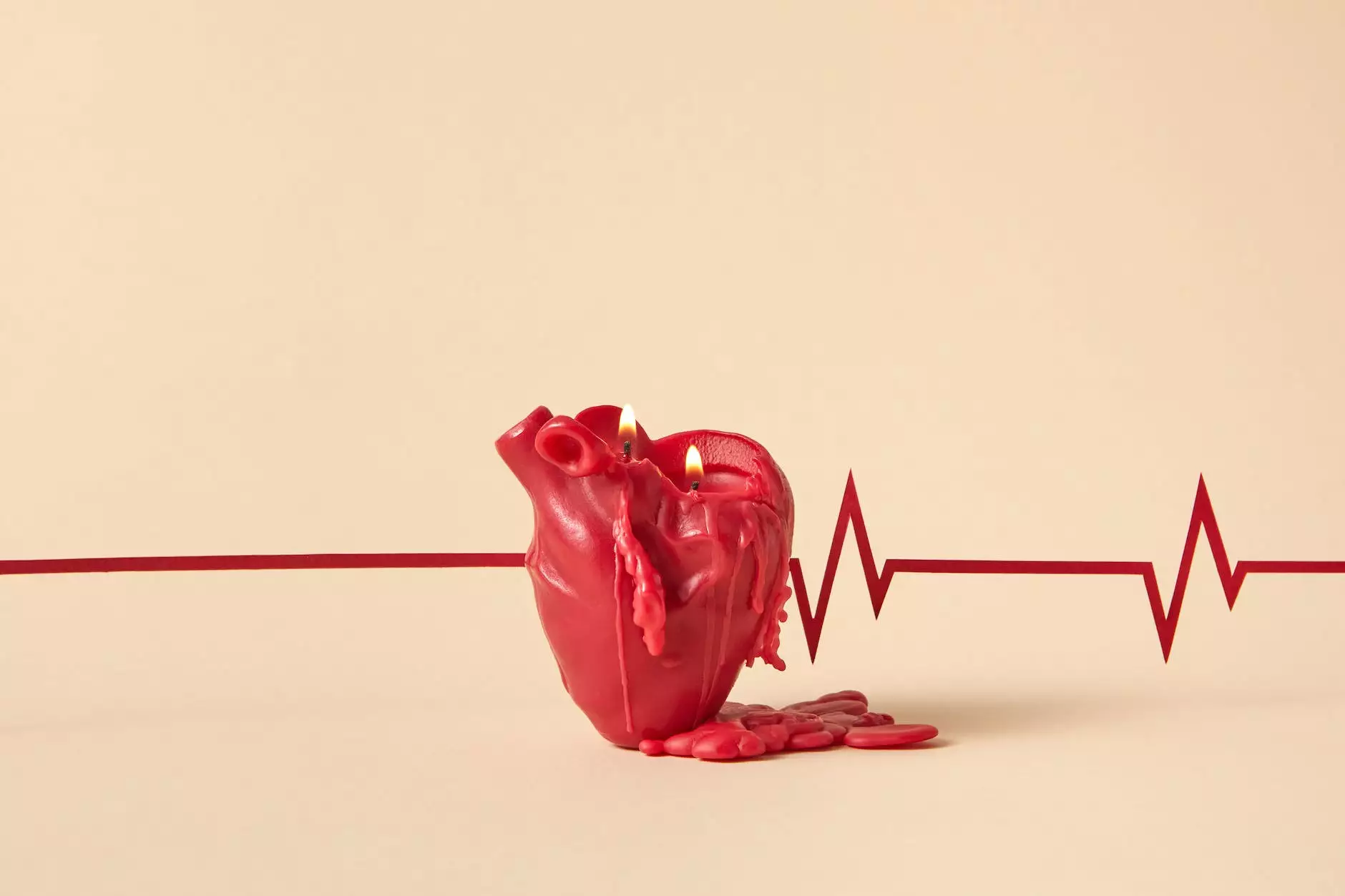Understanding Arrhythmia

What is Arrhythmia?
Arrhythmia, also known as cardiac dysrhythmia, refers to an irregular heartbeat. It occurs when the electrical signals that control the heartbeats are disrupted, causing the heart to beat too fast, too slow, or in an irregular pattern. Arrhythmias can affect people of all ages and can be harmless or life-threatening.
Common Types of Arrhythmias
- Atrial Fibrillation
- Ventricular Tachycardia
- Atrial Flutter
- Premature Ventricular Contractions (PVCs)
- Sick Sinus Syndrome
- Bradyarrhythmias
- Supraventricular Tachycardia (SVT)
Causes of Arrhythmia
Arrhythmias can be caused by various factors, including:
- Heart muscle damage from a heart attack
- Coronary artery disease
- High blood pressure
- Abnormal heart valves
- Thyroid problems
- Excessive alcohol or caffeine consumption
- Drug abuse
- Genetic factors
Symptoms of Arrhythmia
The common symptoms of arrhythmias include:
- Palpitations - feeling like your heart is racing or skipping beats
- Dizziness or lightheadedness
- Shortness of breath
- Chest pain or discomfort
- Fainting or loss of consciousness
Diagnosing Arrhythmia
Proper diagnosis of arrhythmias is crucial for effective treatment. At Bay Regional Medical Center, our experienced cardiologists utilize state-of-the-art diagnostic procedures to identify and evaluate arrhythmias, including:
- Electrocardiogram (ECG)
- Holter Monitoring
- Event Monitoring
- Echocardiogram
- Stress Test
- Invasive Electrophysiology Study
Treatment Options
Bay Regional Medical Center offers a range of treatment options for arrhythmia patients, including:
- Medication - Antiarrhythmic drugs may help control abnormal heart rhythms.
- Cardioversion - This procedure can restore a normal heart rhythm using electrical shocks.
- Catheter Ablation - A minimally invasive procedure to destroy the abnormal heart tissue causing the arrhythmia
- Implantable Devices - Pacemakers and implantable cardioverter-defibrillators (ICDs) may be recommended for certain arrhythmias.
- Surgery - In some cases, surgical intervention is necessary to correct underlying heart problems causing the arrhythmia.
Contact Bay Regional Medical Center
If you or a loved one have concerns about arrhythmia or are seeking expert medical advice, contact Bay Regional Medical Center today. Our dedicated team of cardiologists is committed to providing comprehensive and specialized care for arrhythmia patients. Trust us to help you regain a healthy heart rhythm and improve your quality of life.




